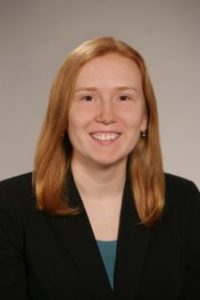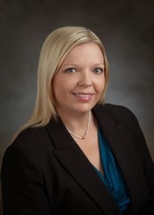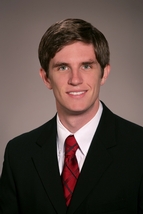First Trial: Cultivating Our Future Litigators Through Mentoring
First Trial: Cultivating Our Future Litigators Through Mentoring
RumbergerKirk’s rich history and long-standing reputation as a top-notch litigation firm was not built overnight. For more than 35 years, the firm has been growing and building its success case by case, but also by mentoring its young attorneys and cultivating a firm of great litigators. “From day one, we have focused on treating all employees with respect and dignity and that culture has grown to create a strong bond among our attorneys and staff,” said Managing Partner Frank Sheppard. “We are family here and that is what makes us look forward to coming to work and rolling up our sleeves together,” he continued.
Having a high degree of respect for every team member is exhibited in the way the firm’s partners work to mentor and teach younger attorneys early in their careers. One important aspect of this mentoring is exposing young attorneys to trial. Under the guidance of their partners, the new attorneys participate not just by doing pre-trial research, motions, discovery and depositions, but also by participating in the trial handling pretrial motions, opening statements, and questioning and cross-examining witnesses.
Three of RK’s associates who participated in their first trial experiences this year—Samantha Duke, Carie Hall, and Chase Hattaway—share their stories and discuss how participating in trial changed their perspective in understanding the entire litigation process. They discuss seeing first-hand the importance pre-trial preparation plays in making a trial go as smoothly as possible, and in the end obtaining a good result for the client.

Samantha Duke began practicing law at Rumberger in 2011 as an associate in the Orlando office. Working alongside senior partner and seasoned trial attorney Scott Kirk, Samantha was surprised by the slow pace of her first trial. “I expected the trial would fly once we got started, but instead it was very steady, which really was a result of the judge’s style,” she noted. “And, both the plaintiff’s counsel and Scott were very relaxed and calm,” she added. Samantha shared that Scott’s demeanor and style went a long way in obtaining the jury’s trust during trial. Instead of fighting over irrelevant technical details, Scott’s professionalism shined while he focused on the big picture of the case and its merits.
Despite the calm atmosphere, like in most trials, Samantha talked about how something unexpected happened every day. “We would have to rework our strategy based upon what happened at trial that day,” she noted.
Each of these young attorneys who experienced their first trial this year talk about the dynamic atmosphere that occurs during trial. Being prepared for the unexpected is something that came up in each of the discussions.
“I knew it would be dynamic and that things would happen that I didn’t anticipate,” said Chase Hattaway, an associate in the Orlando office who joined RK in 2010. “I knew to expect the unexpected.”
All three associates agree that preparation is the best tool for managing the unexpected things that can blindside you during trial.
“As an attorney gains more trial experience, he or she knows more and more of what to expect,” said Carie Hall, an associate in RK’s Tampa office. Carie already had more than 19 years of litigation experience with Rumberger having worked for the firm as a legal assistant before going to law school and becoming an associate in 2012. After participating in her first trial, she talked about having a better understanding of the pretrial preparations.

“This is why Rob Blank [a partner in the Tampa office] sends out so many research assignments before trial—he’s anticipating various arguments and preparing responses for them beforehand,” she said. “You have to have a thorough understanding of the depositions and each piece of the case in order to be prepared to respond to something you might not have expected. That way, when something comes up, you are able to rework your strategy quickly and effectively,” she continued.
Carie said that as she prepares for other trials, she is preparing more for the “what ifs” and planning for contingencies of how to handle different scenarios and have arguments prepared for each. “I look forward to someday having the foresight that Rob has.”
“After going through a trial, it really helped me to see why everything leading up to the trial is important,” said Chase. “Without trial experience, it’s often hard to see how it all fits together.”
Each of the associates talk about the roles they each played in their respective trials, from opening statements to questioning witnesses and cross-examining plaintiffs and some of the strategies they learned along the way. Again, preparation came up as the primary tool for keeping nerves at bay and being ready.
“The most nerve-wracking moment is the opening statement because it’s the first time you are talking to the jury, said Samantha. “I practiced my opening statement over and over again. I did it in front of the mirror, in the car and with my partner. I said it so many times that it just came naturally to me,” she continued.
“One of the things Scott [Kirk] taught me is to keep the opening short. His philosophy is that it’s important to engage the jury and keep their attention,” she explained.

Chase also talked about the need to be clear and concise. “You want to give the jury a preview of what they’re going to hear. The plaintiff side will be much different than ours, so you want to be have them hear our theory before the evidence is presented,” he explained. You need to be very pointed, so I went through my opening with partner Frank Sheppard a number of times and kept whittling it down to the most essential points.”
In Carie’s case, she had prepared twice for her first trial because it had been moved. “I knew the case backwards and forwards. Of course I was still nervous, but you just swallow the nerves and push forward. I was really excited to be finally doing it and just pretended that it was me and the jury, despite the fact there were at least eight people from the office who had come to watch,” she said. “The best part is that you have the opportunity to tell your side of the story.”
During the trial, Chase said that he realized the importance of the opening [and closing] statements. “It’s the one time when you can talk directly to the jury. I didn’t appreciate it enough my first time. When you are questioning witnesses, you’re trying to convey things to the jury, but you can’t talk to them at that point and have to rely on the witness’ answers and hope the jury is making the connections. At the opening, you have the opportunity to tell the jury what is important for the case and what to listen for, which is very powerful,” he said.
Another big lesson for Chase came from watching Managing Partner Frank Sheppard cross examine the plaintiff. “I learned to never give up. There were a couple pieces of evidence that we wanted to get out during the cross examination of the plaintiff and Frank continued questioning him until he was able to get the evidence out. When one line of questioning didn’t work, he pressed forward with another line of questions. He just kept going and going until finally he was able to get the jury a full picture of the plaintiff. I was really impressed that he kept at it long after I think I would have given up,” explained Chase.
Lessons like these are invaluable to the associates as well as to the firm. The associates are being mentored and groomed to become the firm’s future leaders and trial attorneys. The most experienced of these associates has been practicing law for three years and the least experienced for just one year. At Rumberger, associates are given the opportunity to participate in every aspect of litigation. “Involving everyone in the process inspires a spirit of camaraderie and teamwork that results in finding creative ways to get the best possible results for the client,” said Frank Sheppard.
Recognizing that mentoring and training attorneys is key to the firm’s future success, Rumberger has embarked upon developing an Associate College, which will be a more formalized training program involving workshops and practical applications for associates at all levels within the firm.